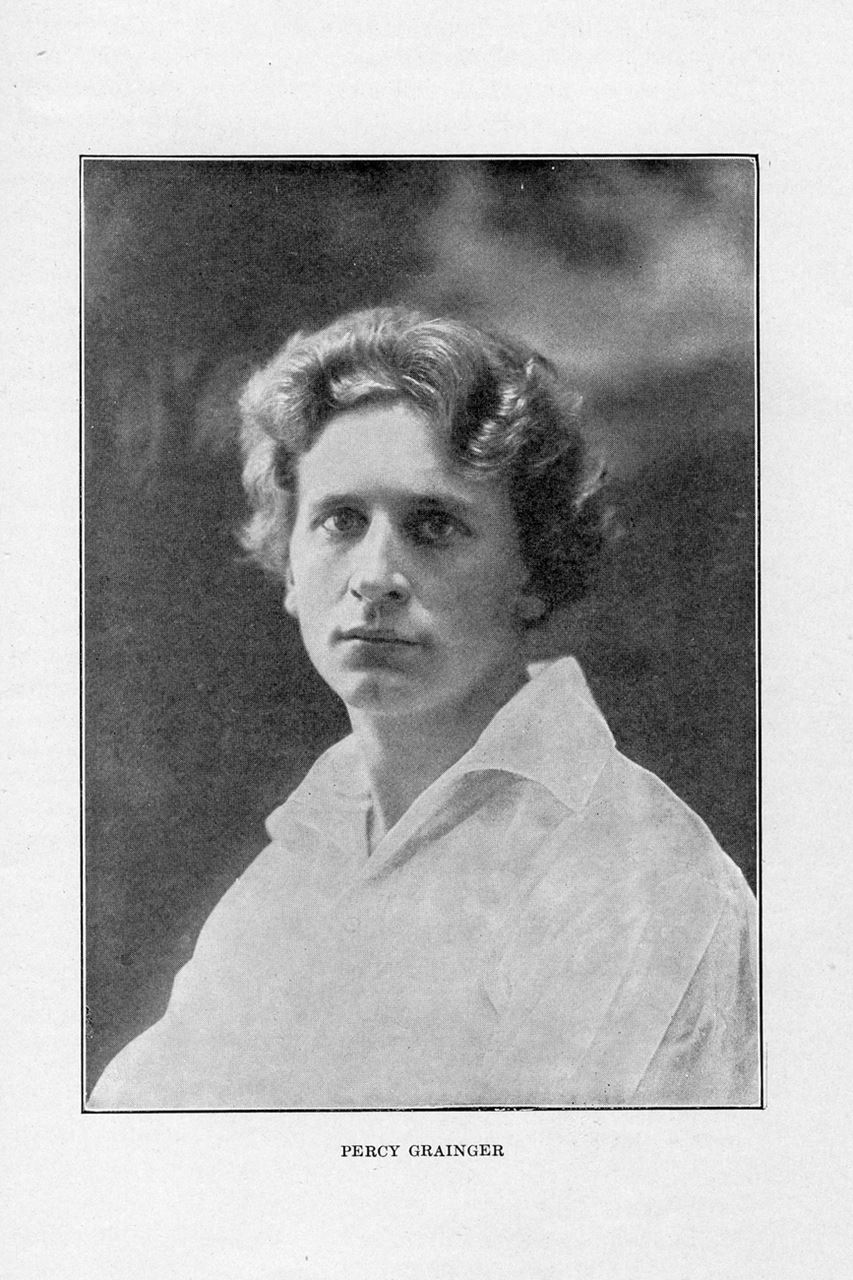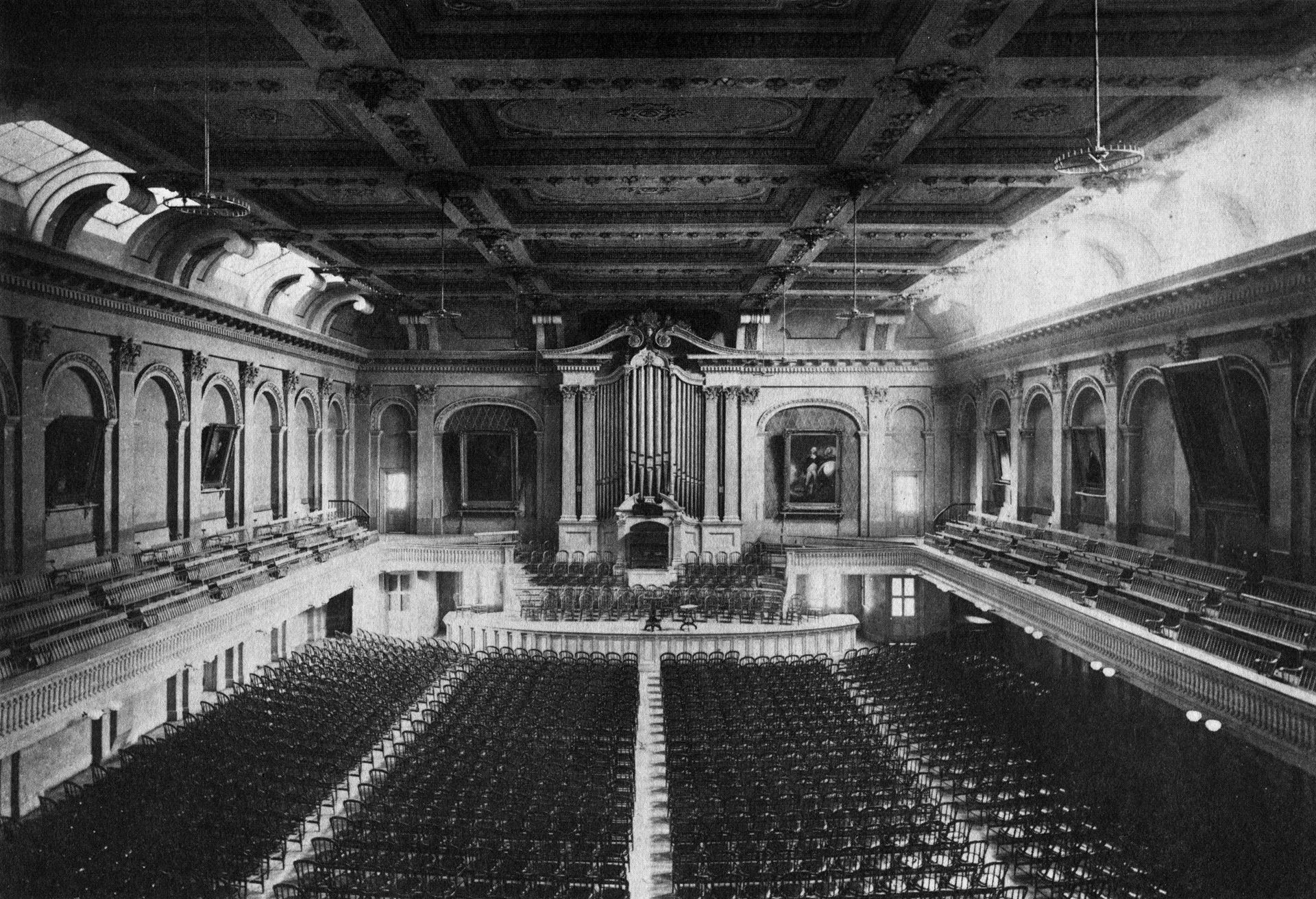
Photo of Grainger, Program booklet for the 1916 Worcester Music Festival.
Percy Grainger appeared eight times in Worcester, Massachusetts. His first performance, to great reviews and media attention, was as soloist in the Grieg Piano Concerto at the 59th Worcester Music Festival in 1916; he also performed four original solo arrangements as part of the formal program. He returned in 1917 (the 60th Festival) armed with a World Premiere. His appearance here in 1919 was outside the Festival on tour with the New York Philharmonic under Joseph Stransky in the Steinert concert series, but still at the acoustically remarkable Mechanics Hall; he played the Tchaikovsky Concerto.
On October 25, 1929, just days before the stock market crash, he played a solo recital at Clark University’s Clark Auditorium; he quickly returned in the Festivals of 1930 (71st,) 1931 (72nd,) and 1942 (83rd.) His eighth and final appearance was in a joint recital with violinist Leona Flood and her accompanist Pablo Miquel in Clark University’s Fine Arts concert series in 1945.
Two major Grainger works were given their world-premiere at the Festival: “Marching Song of Democracy” (60th Festival, 1917) and “Tribute to Foster” (72nd Festival, 1930.)
As the popularity of the Festival grew exponentially, Mechanics Hall’s 1,600 seats could not accommodate the crowds. Built in 1857 (the Worcester Chorus and the annual Festival were established in 1858) it was a popular and much-used jewel in the civic crown of a city that was a major economic powerhouse. Now on the National Register of Historic Places, it was and is acoustically favorable to speakers and musicians alike. It had also become a little care-worn over the years, mentioned in some of Grainger’s later press, and the Festival moved to the new War Memorial Auditorium in 1933, only returning to a beautifully restored and modernized Mechanics Hall after 1977.
I have included these early Worcester Daily Telegram articles to give a sense of the reception he was receiving as a fresh face on the concert scene, not only musically but personally. These took the form not only of concert reviews but Festival interviews and previews, “Women’s Interest” and “Entertainment News” articles, breathless information on arrivals and departures, hotels, extra-musical activities and what Grainger and his mother Rose wore at various events.
Not surprisingly tickets to the open morning rehearsals, where audience and performers were more casual, were as in demand as the concerts, especially among younger members of the audience, many of them aspiring musicians. The press saw the rehearsals as an opportunity for personal insight, as fascinating for review as the more formal events. The performers, of course, were in performance.
Please click here for the continuation of Percy Grainger in Worcester: Two World-Premières.
- Eric Culver

Photo of Mechanics Hall interior, early 20th c., from Raymond Morin, The Worcester Music Festival 1858-1976